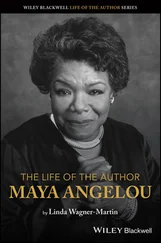It is a biographical stretch, therefore, to argue that young William was motivated by the desire to reverse his father’s and his family’s decline, but it is certain that John, as father, would have determined the course of his son’s life as a teenager. More than that, “in Elizabethan families the eldest son stands in a special relationship to the father as the primary inheritor of property and as the transmitter of patrilineal values,” the father’s “legal successor and metaphysical continuation” (Tromly 2010, p. 248). Simply by virtue of the patriarchal control invested in him by church and state, John had almost total sway over his son’s future (Fallow 2015, p. 38). And that future did not include university.
Biographer Jonathan Bate (2008, p. 75) views this as significant, contrasting Shakespeare with his almost exact contemporary Christopher Marlowe. As a student at Cambridge University, Marlowe was drawn into a dangerous intellectual world of philosophy, Machiavellian thinking, even atheism and, for Bate, this was a natural route to the edgy life of poet and playwright. Bart van Es (2013, p. 14) sees things differently. “A playwright’s literary accomplishment was in practice little affected by attendance at university: Oxford and Cambridge specialized in the teaching of theology, philosophy, history, and similar branches of exact learning, and not in literature of a kind that a poet might readily apply.”
So, no university for William – but how did he spend his youth? Some suggest he was informally apprenticed to the family business. Both John and Mary “were capable and tough-minded business people” (Edmondson and Wells 2015a, p. 330), unlikely to employ other people when there was a healthy eldest son to be trained up: there’s a “logical possibility” therefore that William was apprenticed to “the unregulated family business” (Fallow 2015, p. 38). This apprenticeship would not necessarily preclude an engagement with the acting world, whether in Stratford, its surroundings, or even in faraway London, the business capital. Indeed, as Bart van Es (2013, pp. 9–10) points out, we don’t need to make a choice between William the apprentice and William the actor, because so many actors had their “roots in practical professions,” the theater industry itself having its foundations in medieval guilds and corporations.
The truth is, we just don’t know whether Shakespeare was apprenticed to the family business. Nor do we know much about his or his family’s religious practices, let alone beliefs, but there is nevertheless a noisy debate as to whether the Shakespeares were closet Catholics in a Protestant England. 5Hard evidence is elusive, although one can argue that it would be. The religious changes over the course of John Shakespeare’s life did not help the quest of future generations seeking insight into any individual’s belief. The Reformation made it easier to be labeled a heretic, as there was no longer a unified church to guide the faithful, and, especially in countries such as England, the authorities who determined religious policy changed at an alarming rate.
Those with Catholic sympathies were wise to conform outwardly in an era where opposition to the established Protestant Church of England was punishable by, at best, fines, and at worst – at least for those who actively supported the pope’s command to overthrow Queen Elizabeth I in the name of the Catholic religion - torture and execution. In the 15 years or so prior to William’s birth, England had gone from a country in the grip of a zealous Protestant Reformation under the young king Edward VI to an equally zealous return to Roman Catholicism under his sister Mary, only to be returned to Protestantism with the accession of Queen Elizabeth I in 1558. Put another way, it became ever more important to think about individual salvation but equally dangerous to declare one’s confessional allegiance (Hadfield 2019, p. 18). In an era of traumatic religious change, caution was wise.
We do know that when William was 19, two Catholic members of his mother’s Arden family, Mary and Edward, were arrested for conspiring to kill the queen. Mary was pardoned. Edward was executed, his head displayed on London Bridge as was the custom of the time. There are, furthermore, two pieces of evidence to suggest that William’s father, John, was Catholic. A “Testament of Faith” with his name written on it was found hidden in the rafters of the Henley Street house in 1757. Crypto-Catholics kept these documents, a profession of their faith, close by them to be used if they faced death and there was no priest available for the last rites. The second piece of evidence shows that, in 1592, by which time William was approaching 30, his father got in trouble twice for recusancy, that is, failing to attend church. Did Shakespeare’s – possible – Catholic heritage, beliefs, or merely “sympathies” result in a body of works which lack an “overt polemical edge,” result in a writer’s life of caution, as Dutton (1989, p. 10) argues?
The evidence for John’s beliefs is not entirely reliable. The “Testament” was found some 150 years after Shakespeare senior lived in Henley Street, and was then promptly lost. Those recusancy records of 1592 ascribe his avoidance of church to fearful pragmatism, rather than religious nonconformity. John Shakespeare owed money; it was far too easy to be found at church; he thus kept away “for fear of process for debt.”
Moreover, it is all too easy to impose reductive labels on what was a fluid belief system. As James Shapiro (2005a, p. 167) writes, “to argue that the Shakespeares were secretly Catholic or alternatively, mainstream Protestants misses the point that except for a small minority at one doctrinal extreme or other, those labels failed to capture the layered nature of what Elizabethans, from the queen on down, actually believed.” The Elizabethan Church Settlement was, in part, designed to accommodate this, tolerating “a wide range of spiritual and religious beliefs among those who were happy outwardly to conform” (Edmondson and Wells 2015b, p. 9). Old beliefs and habits died hard, much harder than historians in the past believed.
Yet, despite the tenuous evidence, we remain fascinated by Shakespeare’s possible Catholicism. Maguire and Smith (2012) argue that the fascination stems at least in part from the glimpse it offers of a
Shakespeare who is not simply accumulating wealth and property but who apparently suffers inner conflict, a struggle with his conscience, and whose writing is shaped by the mechanisms he has developed for his own psychological and physical self-protection. In this model, Catholicism registers as much as an act of individual assertion and defiance – the poet at an angle to establishment values – as it does as a specific doctrinal allegiance. While the question of whether Shakespeare was a Catholic is unlikely to be definitively answered, we can certainly affirm that we want him to have been.
Whether we want him to be an apprentice is another matter. Some have seen 18-year-old William’s activities in the summer of 1582 as evidence that he would do anything to avoid joining the family business. An apprentice was not allowed to marry. To escape apprenticeship, therefore, William has sex with Anne Hathaway, perhaps six years his senior and, almost as soon as she finds she is pregnant, marries her, welcoming the marriage and pregnancy “as ways to break free of an enforced apprenticeship” (Orlin 2016, p. 39). 6
John Shakespeare gave his consent to the marriage of William and Anne in November 1582, that consent necessary because his son, at 18, was still a minor. The Hathaway family appeared content with the marriage, providing the “bondsmen” to safeguard the wife’s interests, as was conventional (Schoenbaum 1991, p. 12). Anne received 10 marks on her wedding day, the equivalent to £6 13s 4d, probably a bit more than a playwright in the next decade received for a completed play (Potter 2012, p. 56). And she duly gave birth to a baby girl the following spring. Susanna Shakespeare was baptized on 26 May 1583, in Holy Trinity Church, as her father had been just over 19 years earlier. Around a year later, Anne was pregnant again. The Shakespeare twins, Hamnet and Judith, were christened on 2 February 1585, probably named for close friends of their parents, the baker Hamnet Sadler and his wife Judith. Richard Barton, a new minister in Stratford, a man unreservedly praised by the more vocal Protestants of the town, baptised the twins. This might offer a glimpse of Shakespeare’s religious position: “either a good Church of England Protestant or doing his best to look like one” (Potter 2012, p. 59). His “distinctive anonymity” (Dutton 2010, p. 11) is the one thing that is certain, although whether this was a reaction against his parent’s alleged crypto-Catholicism, a product of having been brought up in a household which was not fervidly religious or simply all that emerges from a sparse archive, is a matter for debate.
Читать дальше











![Уильям Шекспир - The Works of William Shakespeare [Cambridge Edition] [Vol. 1 of 9]](/books/746589/uilyam-shekspir-the-works-of-william-shakespeare-c-thumb.webp)